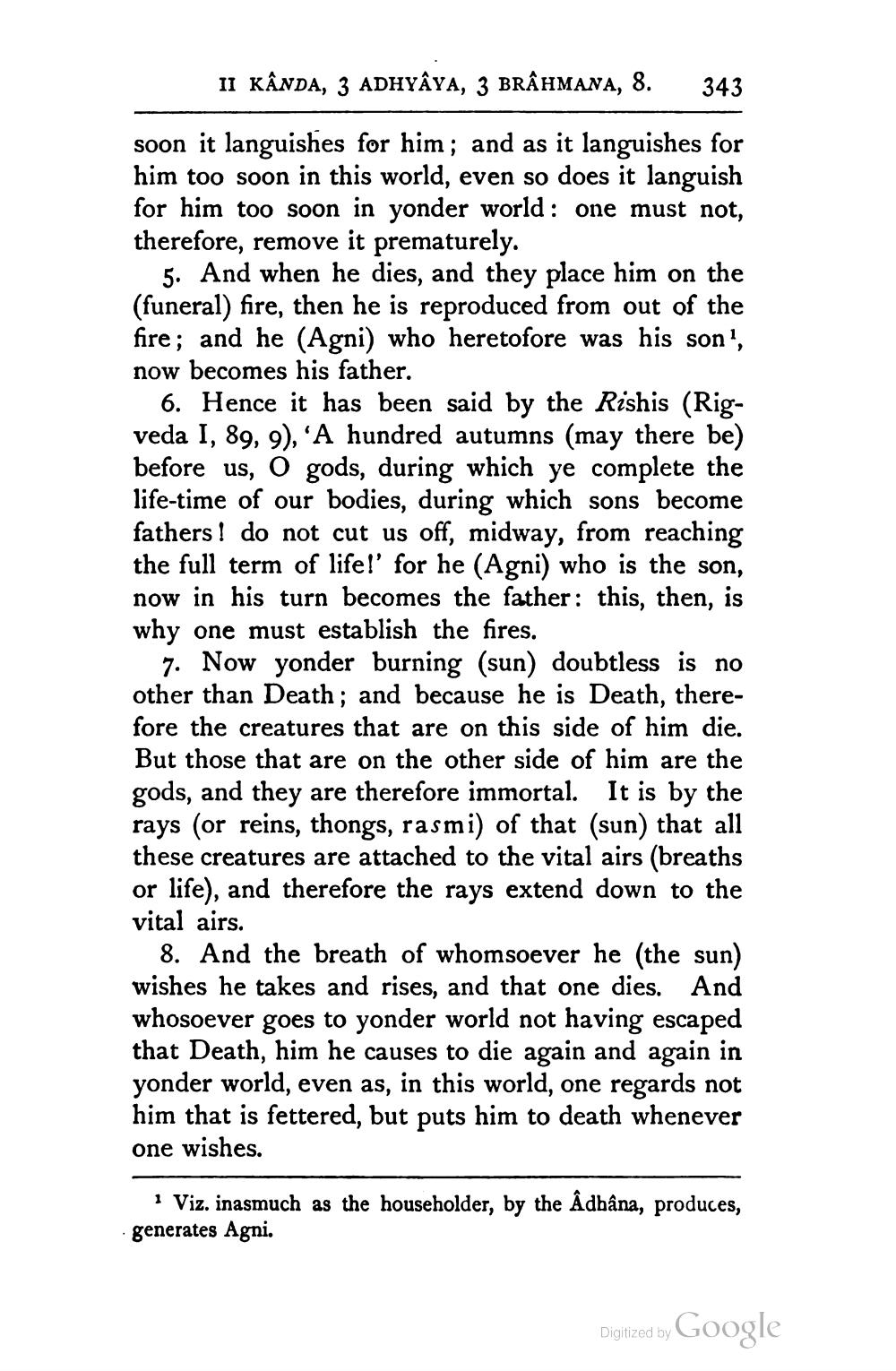________________
II KÂNDA, 3 ADHYAYA, 3 BRAHMANA, 8.
343
soon it languishes for him; and as it languishes for him too soon in this world, even so does it languish for him too soon in yonder world: one must not, therefore, remove it prematurely.
5. And when he dies, and they place him on the (funeral) fire, then he is reproduced from out of the fire; and he (Agni) who heretofore was his son', now becomes his father.
6. Hence it has been said by the Rishis (Rigveda I, 89, 9), 'A hundred autumns (may there be) before us, O gods, during which ye complete the life-time of our bodies, during which sons become fathers ! do not cut us off, midway, from reaching the full term of lifel' for he (Agni) who is the son, now in his turn becomes the father: this, then, is why one must establish the fires.
7. Now yonder burning (sun) doubtless is no other than Death; and because he is Death, therefore the creatures that are on this side of him die. But those that are on the other side of him are the gods, and they are therefore immortal. It is by the rays (or reins, thongs, rasmi) of that (sun) that all these creatures are attached to the vital airs (breaths or life), and therefore the rays extend down to the vital airs.
8. And the breath of whomsoever he (the sun) wishes he takes and rises, and that one dies. And whosoever goes to yonder world not having escaped that Death, him he causes to die again and again in yonder world, even as, in this world, one regards not him that is fettered, but puts him to death whenever one wishes.
· Viz. inasmuch as the householder, by the Adhâna, produces, generates Agni.
Digitized by Google




